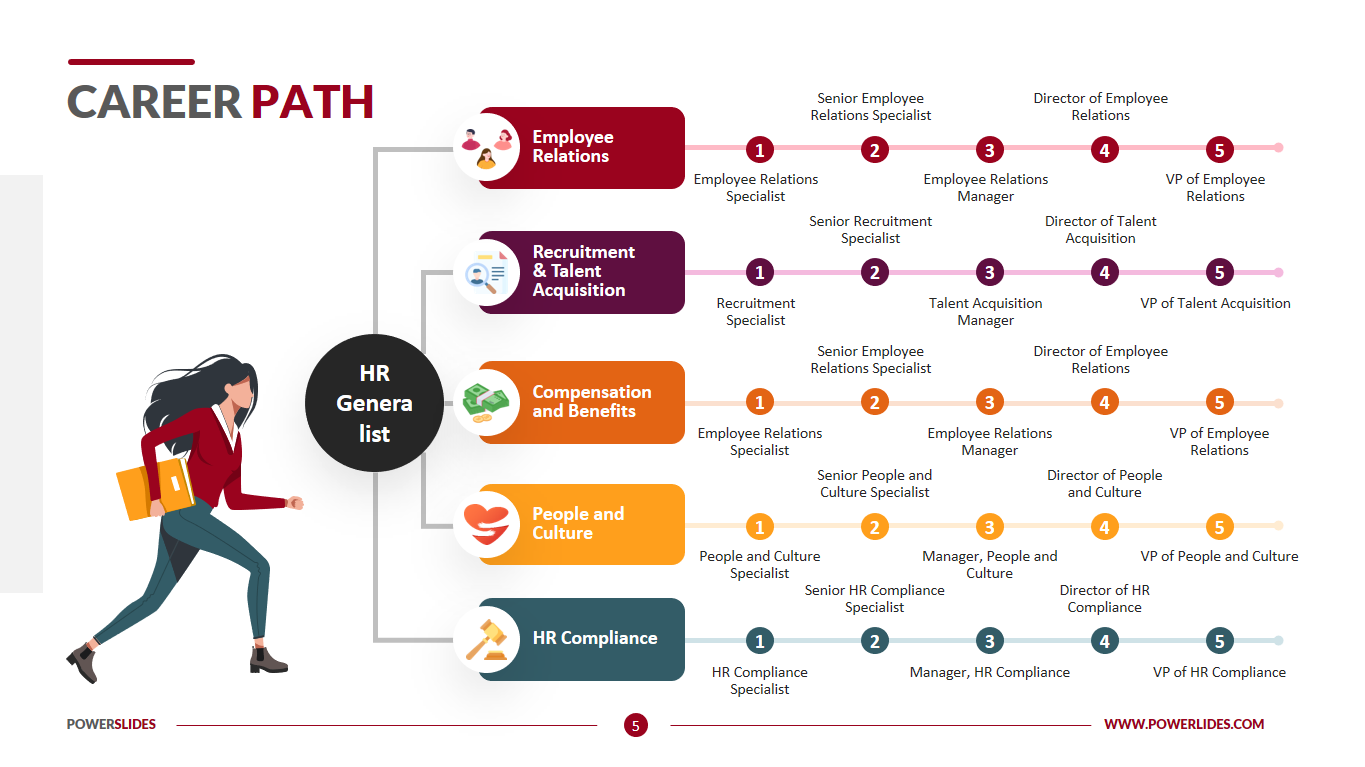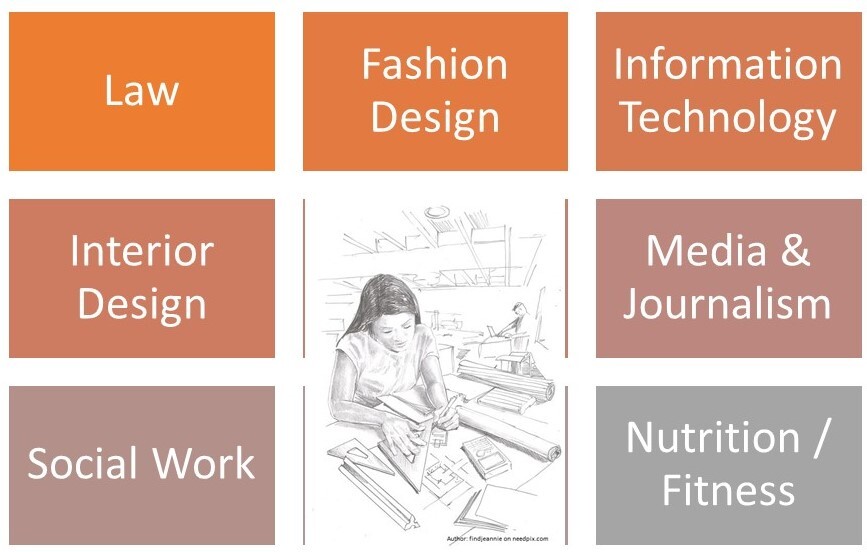Navigating the Modern Workforce: Popular Career Paths for Women in the 21st Century
Related Articles: Navigating the Modern Workforce: Popular Career Paths for Women in the 21st Century
Introduction
With enthusiasm, let’s navigate through the intriguing topic related to Navigating the Modern Workforce: Popular Career Paths for Women in the 21st Century. Let’s weave interesting information and offer fresh perspectives to the readers.
Table of Content
Navigating the Modern Workforce: Popular Career Paths for Women in the 21st Century

The landscape of professional opportunities has evolved significantly in recent decades, with women increasingly carving out prominent roles across diverse sectors. This evolution reflects a shift in societal norms, a growing awareness of gender equality, and a recognition of the immense value women bring to the workforce. This article examines popular career paths for women in the 21st century, highlighting their unique strengths, challenges, and the positive impact they make on society.
1. Healthcare: A Calling for Compassion and Expertise
The healthcare industry has historically been a significant source of employment for women, and this trend continues to flourish. From nurses and doctors to pharmacists and therapists, women are instrumental in providing essential care and support to individuals and communities.
Popular Roles:
- Registered Nurse (RN): RNs are the backbone of the healthcare system, providing direct patient care, administering medications, and educating patients and families.
- Physician Assistant (PA): PAs work closely with physicians, providing a wide range of medical services, including diagnosis, treatment, and patient education.
- Pharmacist: Pharmacists dispense medications, counsel patients on drug interactions and side effects, and play a vital role in medication safety and public health.
- Physical Therapist (PT): PTs help patients recover from injuries and illnesses through exercise, rehabilitation programs, and manual therapy.
- Occupational Therapist (OT): OTs work with individuals to improve their daily living skills and regain independence after illness or injury.
Benefits:
- High demand: The aging population and growing need for healthcare services create a robust job market for healthcare professionals.
- Impactful work: Healthcare professionals make a tangible difference in the lives of others, providing comfort, healing, and support.
- Variety of specializations: The healthcare field offers a wide range of specializations, allowing individuals to tailor their careers to their interests and skills.
Challenges:
- Long hours and demanding work: Healthcare professionals often work long and irregular hours, requiring dedication and resilience.
- Emotional toll: Dealing with illness and suffering can be emotionally challenging, requiring strong coping mechanisms.
- Competition for specialized roles: Competition for advanced roles, such as physicians and surgeons, can be intense.
2. Technology: Breaking Barriers and Shaping the Future
The tech industry, once considered a male-dominated field, is now experiencing a surge in female representation. Women are leading the charge in developing innovative technologies, shaping the digital landscape, and driving progress in artificial intelligence, cybersecurity, and software engineering.
Popular Roles:
- Software Engineer: Software engineers design, develop, and test software applications, playing a crucial role in building and maintaining the digital world.
- Data Scientist: Data scientists analyze large datasets to extract insights, predict trends, and inform decision-making in various industries.
- Cybersecurity Analyst: Cybersecurity analysts protect computer systems and networks from cyberattacks, ensuring data security and privacy.
- User Experience (UX) Designer: UX designers create user-friendly and intuitive interfaces for websites, apps, and other digital products.
- Product Manager: Product managers oversee the development and launch of new products, ensuring they meet market needs and user expectations.
Benefits:
- High salaries and growth potential: The tech industry offers competitive salaries and significant opportunities for career advancement.
- Innovation and creativity: Technology provides a platform for innovation and creative problem-solving, fostering a dynamic and intellectually stimulating work environment.
- Global reach: The tech industry is global, offering opportunities to work with diverse teams and collaborate on projects with international impact.
Challenges:
- Gender bias and stereotypes: Despite progress, the tech industry still faces challenges in addressing gender bias and overcoming stereotypes that can hinder women’s advancement.
- Competitive landscape: The tech sector is highly competitive, requiring continuous learning and adaptation to stay ahead of the curve.
- Work-life balance: The fast-paced nature of the tech industry can sometimes pose challenges in maintaining a healthy work-life balance.
3. Education: Nurturing Minds and Shaping Futures
The education sector offers a rewarding career path for women who are passionate about teaching, learning, and shaping the minds of future generations. From preschool teachers to university professors, women play a crucial role in fostering intellectual growth, promoting critical thinking, and nurturing a love of learning.
Popular Roles:
- Teacher: Teachers guide and instruct students, developing their knowledge, skills, and values.
- School Counselor: School counselors provide academic, personal, and social support to students, helping them navigate challenges and reach their full potential.
- Librarian: Librarians curate and manage library collections, provide research assistance, and promote literacy and information literacy.
- Professor: Professors conduct research, teach courses, and mentor students at the university level, contributing to the advancement of knowledge and scholarship.
- Early Childhood Educator: Early childhood educators work with young children, providing nurturing care, promoting social and emotional development, and laying the foundation for lifelong learning.
Benefits:
- Impactful work: Educators have a direct and lasting impact on the lives of their students, shaping their future and contributing to a better society.
- Job security: The demand for qualified educators is consistently high, ensuring job security and stability.
- Variety of specializations: The education sector offers a wide range of specializations, from specific subject areas to educational leadership and administration.
Challenges:
- Low salaries and limited resources: In many regions, teachers and educators face challenges related to low salaries and limited resources, impacting their ability to provide quality instruction.
- High workload and stress: Educators often face high workloads, demanding schedules, and the pressure to meet educational standards.
- Lack of recognition and appreciation: The vital role of educators is sometimes undervalued, leading to a lack of recognition and appreciation for their contributions.
4. Business and Finance: Leading with Vision and Strategic Thinking
Women are increasingly taking the reins in the business and finance world, demonstrating strong leadership skills, analytical abilities, and a keen understanding of market dynamics. They are shaping corporate strategies, driving innovation, and making significant contributions to economic growth.
Popular Roles:
- Chief Executive Officer (CEO): CEOs are responsible for the overall direction and performance of a company, setting strategic goals and leading the organization towards success.
- Chief Financial Officer (CFO): CFOs manage the financial health of a company, overseeing budgets, investments, and financial reporting.
- Management Consultant: Management consultants provide expert advice to businesses on strategy, operations, and other areas, helping them improve efficiency and profitability.
- Investment Banker: Investment bankers advise companies on mergers and acquisitions, capital raising, and other financial transactions.
- Financial Analyst: Financial analysts analyze financial data, evaluate investment opportunities, and provide recommendations to clients or employers.
Benefits:
- High earning potential: Business and finance careers offer significant earning potential, with opportunities for advancement and leadership roles.
- Challenging and rewarding work: These roles demand analytical skills, strategic thinking, and a drive to succeed, offering a dynamic and intellectually stimulating work environment.
- Global impact: Business and finance professionals play a vital role in shaping the global economy, influencing investment decisions and driving economic growth.
Challenges:
- Gender bias and lack of representation: Despite progress, the leadership ranks in business and finance remain dominated by men, highlighting the need for continued efforts to promote gender equality.
- Long hours and demanding work: Business and finance roles often require long hours and a willingness to work under pressure, demanding high levels of commitment and dedication.
- Competition and pressure to perform: The competitive nature of the business world can create intense pressure to perform and deliver results, requiring resilience and adaptability.
5. Law: Advocating for Justice and Equality
The legal profession has historically been a male-dominated field, but women are increasingly making their mark as lawyers, judges, and legal professionals, advocating for justice, equality, and human rights.
Popular Roles:
- Lawyer: Lawyers represent clients in legal matters, advocating for their rights and interests in courts, tribunals, and other legal proceedings.
- Judge: Judges preside over legal proceedings, interpreting the law, and making decisions based on evidence and legal principles.
- Prosecutor: Prosecutors represent the state in criminal cases, presenting evidence and arguing for the prosecution’s case.
- Public Defender: Public defenders represent individuals who cannot afford legal representation, ensuring everyone has access to legal counsel.
- Legal Analyst: Legal analysts research and interpret legal issues, providing insights and recommendations to clients, lawyers, or government agencies.
Benefits:
- Intellectual stimulation: The legal profession demands analytical thinking, critical reasoning, and a deep understanding of legal principles, offering a challenging and intellectually stimulating career path.
- Advocacy and impact: Lawyers and legal professionals play a vital role in upholding justice, protecting individual rights, and shaping legal policies.
- Variety of specializations: The legal field offers a wide range of specializations, from criminal law to corporate law, allowing individuals to tailor their careers to their interests and skills.
Challenges:
- High competition and demanding work: The legal profession is highly competitive, requiring rigorous education, extensive training, and a strong work ethic.
- Long hours and pressure: Lawyers often work long hours, face demanding deadlines, and experience high levels of stress, requiring resilience and dedication.
- Gender bias and stereotypes: The legal profession still faces challenges in addressing gender bias and overcoming stereotypes that can hinder women’s advancement.
FAQs by Popular Careers for Females:
Healthcare:
-
Q: What are the most in-demand healthcare careers for women?
- A: Registered Nurse (RN), Physician Assistant (PA), and Pharmacist are consistently high in demand due to the growing need for healthcare services.
-
Q: What are the educational requirements for a healthcare career?
- A: Most healthcare careers require a bachelor’s degree or higher, with some requiring specialized certifications or licensures.
-
Q: How can I gain experience in the healthcare field?
- A: Volunteer at a hospital or clinic, shadow healthcare professionals, or participate in internships to gain practical experience.
Technology:
-
Q: What are the best entry-level tech roles for women?
- A: Software Engineer, Data Analyst, and UX Designer are good entry-level roles that offer opportunities for growth and career advancement.
-
Q: What skills are essential for a successful tech career?
- A: Strong analytical skills, problem-solving abilities, proficiency in programming languages, and a knack for innovation are crucial.
-
Q: How can I break into the tech industry without a computer science degree?
- A: Consider bootcamps, online courses, or self-directed learning to acquire the necessary skills. Networking and mentorship opportunities can also be valuable.
Education:
-
Q: What are the most rewarding aspects of a career in education?
- A: The opportunity to make a positive impact on students’ lives, foster their intellectual growth, and contribute to a better society are highly rewarding.
-
Q: What are the challenges faced by educators today?
- A: Low salaries, limited resources, high workloads, and the pressure to meet standardized testing requirements are some of the challenges educators face.
-
Q: How can I prepare for a career in education?
- A: Pursue a degree in education, gain experience through internships or volunteer work, and consider obtaining teaching certifications.
Business and Finance:
-
Q: What are the key skills needed for a successful career in business and finance?
- A: Strong analytical skills, strategic thinking, leadership qualities, communication skills, and a deep understanding of financial markets are essential.
-
Q: How can I gain experience in the business and finance sector?
- A: Internships, volunteer work, and networking opportunities can provide valuable experience. Consider joining professional organizations and attending industry events.
-
Q: What are the challenges women face in climbing the corporate ladder in business and finance?
- A: Gender bias, lack of representation in leadership roles, and unconscious bias can hinder women’s advancement.
Law:
-
Q: What are the different areas of law that women can specialize in?
- A: Criminal law, corporate law, family law, environmental law, and human rights law are just a few of the many areas of law women can specialize in.
-
Q: What are the educational requirements for a law career?
- A: A Juris Doctor (JD) degree from an accredited law school is required for most legal careers.
-
Q: What are the challenges women face in the legal profession?
- A: Gender bias, lack of representation in senior leadership roles, and the demanding nature of the profession are some of the challenges women face.
Tips by Popular Careers for Females:
Healthcare:
- Network with other healthcare professionals: Attend industry conferences, join professional organizations, and connect with mentors to expand your professional network.
- Stay up-to-date on the latest advancements: The healthcare field is constantly evolving, so it’s crucial to stay informed about the latest research, technologies, and best practices.
- Develop strong communication and interpersonal skills: Effective communication is essential for building strong relationships with patients, colleagues, and families.
Technology:
- Learn a programming language: Proficiency in a programming language is essential for most tech roles.
- Build a portfolio of projects: Demonstrate your skills and experience by creating personal projects or contributing to open-source projects.
- Attend hackathons and tech events: Hackathons provide opportunities to collaborate with other developers and showcase your skills.
Education:
- Gain experience through internships or volunteer work: Practical experience in the classroom is invaluable for aspiring educators.
- Develop strong classroom management skills: Effective classroom management is essential for creating a positive and productive learning environment.
- Stay current on educational trends and best practices: The field of education is constantly evolving, so it’s important to stay informed about the latest research and pedagogical approaches.
Business and Finance:
- Develop strong analytical and problem-solving skills: These skills are crucial for success in business and finance.
- Build a network of contacts in the industry: Networking is essential for finding job opportunities, gaining insights, and building relationships.
- Stay informed about market trends and economic developments: A strong understanding of market dynamics is essential for making informed decisions.
Law:
- Develop strong legal research and writing skills: These skills are fundamental to legal practice.
- Gain experience through internships or clerkships: Internships and clerkships provide valuable experience in legal settings.
- Network with other legal professionals: Attend industry events, join professional organizations, and connect with mentors to build your network.
Conclusion:
The 21st-century workforce presents a diverse range of opportunities for women, allowing them to pursue their passions, contribute their unique talents, and make a positive impact on society. From healthcare to technology, education to business, and law, women are breaking down barriers, shattering stereotypes, and shaping the future of their respective fields. By embracing their strengths, pursuing their goals with determination, and advocating for greater equality, women are paving the way for future generations to thrive in the modern workforce. The journey towards gender equality in the workplace is ongoing, but with continued progress and commitment, the future holds immense potential for women to achieve their full potential and contribute to a more just and equitable world.

![The 21st Century Workforce [Infographic] ~ Visualistan](https://3.bp.blogspot.com/-4L4YX44w33k/UuZXhdYflTI/AAAAAAAAJR8/cPr0VyIoArw/s1600/The-21st-Century-Workforce-Infographic].png)






Closure
Thus, we hope this article has provided valuable insights into Navigating the Modern Workforce: Popular Career Paths for Women in the 21st Century. We thank you for taking the time to read this article. See you in our next article!